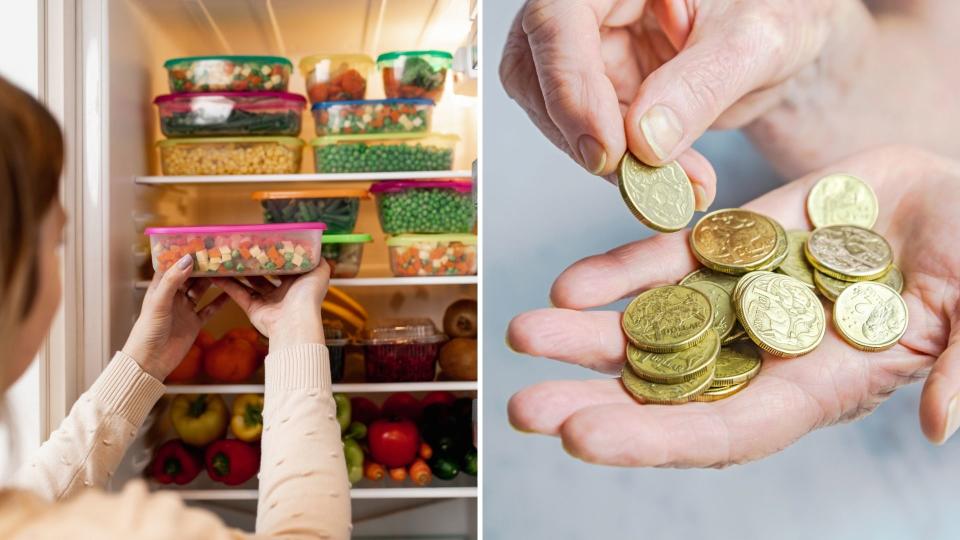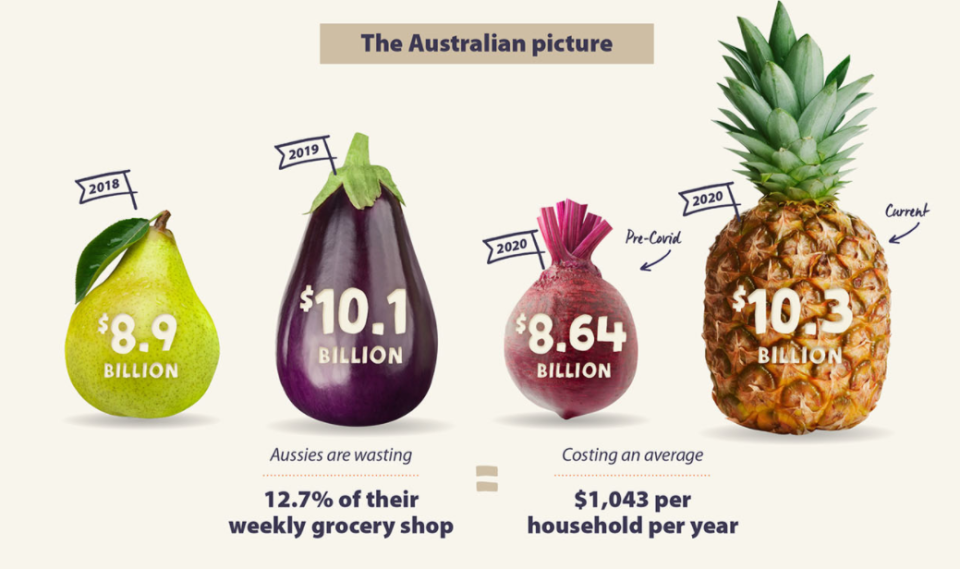$1,043 gone: Aussies who do this waste twice as much food

Australians who use meal kits waste more than twice the amount of food than those who don’t, but the pandemic has seen everyone fall into bad habits, a new report has revealed.
Collectively, Australians wasted $10.3 billion in food during 2020, or $1,043 per household, Rabobank’s 2020 Food Waste Report revealed. That’s up from $872 pre-pandemic.
It found that while Australians were making progress in cutting food waste, the pandemic has derailed that progress as people turned to home cooking, experimenting and meal delivery services during lockdown.

Food waste dropped from 12.9 per cent in 2019 to 11.1 per cent in early 2020, before climbing to 12.7 per cent.
Australians were also stockpiling more, Rabobank’s head of client experience Glenn Wealands said. And while it was understandable that food waste may be deprioritised during the pandemic, now was the time to get back on track.
“Think about how and when you can use the excess food in your pantry and freezer,” Wealands said.
“Check your cupboards and the use by dates on packages to ensure you’re using what you have, make a weekly meal plan before you shop online and factor in a night off when you order your favourite local takeaway.
“These measures will have a huge impact on reducing our food waste collectively, as well as being kinder to the hip pocket for Aussies.”
The meal kit challenge
Lockdown also saw many Australians take up meal kit services, rising from 28 per cent pre-pandemic to 38 per cent.
However, Rabobank said there is a “worrying correlation” between increased food waste and those services.
It found that people who use those services tend to waste more than twice as much food compared to those who don’t.
“This is a real watch-out for consumers,” Wealands said.
“We note through the research that consumers are working harder than ever to keep their finances in check, so it’s especially important for those that order pre-prepared meals, to be mindful that unless you’re using these services wisely it’s bad for your wallet and bad for reducing food waste.”
Most Australians waste food because it goes off before they can eat it, it’s hidden in the fridge or we’ve forgotten we bought it, or we just planned poorly.
Older Australians are the best at using all their food, with Baby Boomers wasting only 6 per cent of their food. At the other end of the spectrum, Generation Z Australians are wasting 18.4 per cent of their food.
“Aussies clearly care about reducing their food waste, but we all need to understand that the impact is far greater than just hip-pocket savings,” Wealands said.

“It’s our collective responsibility to make changes and start to minimise waste across the entire food supply chain.
“There are some inspiring innovations going on at all stages of food production from farmers to manufacturers, retailers and at a government level. If we all do our bit, we can have a huge impact on the amount of food wasted and create a more sustainable future.”
Want to hear Australian influencers reveal their best finance tips? Join the Broke Millennials Club on Facebook, and receive one hot tip per day in December.
And if you want 2021 to be your best (financial) year yet, follow Yahoo Finance on Facebook, LinkedIn, Instagram and Twitter. Subscribe to the free Fully Briefed daily newsletter here.

 Yahoo Finance
Yahoo Finance 
